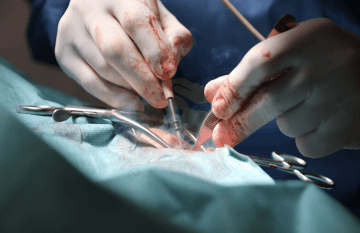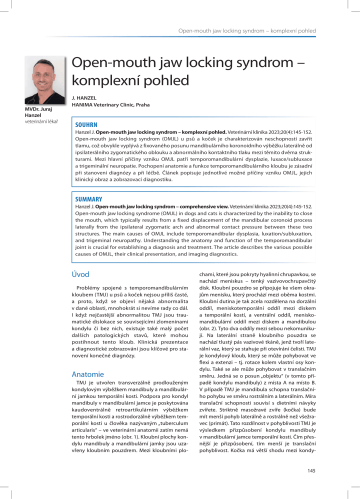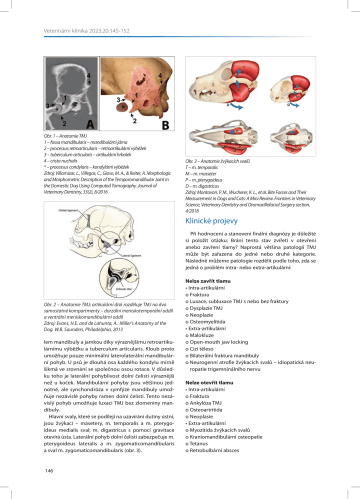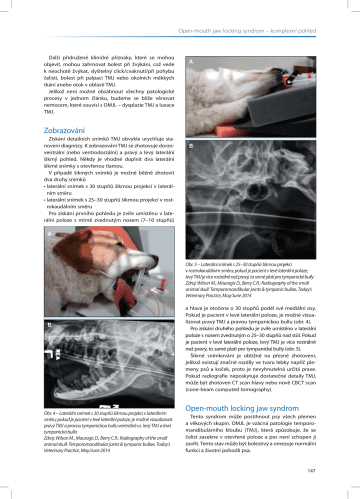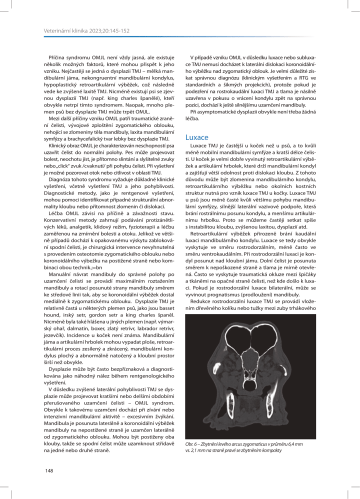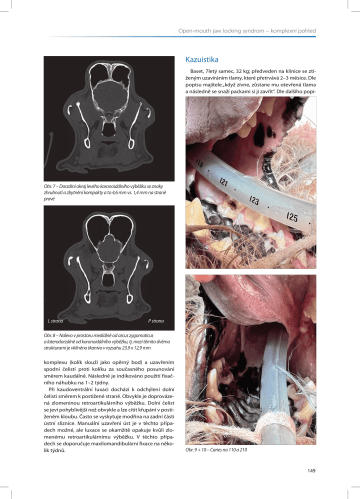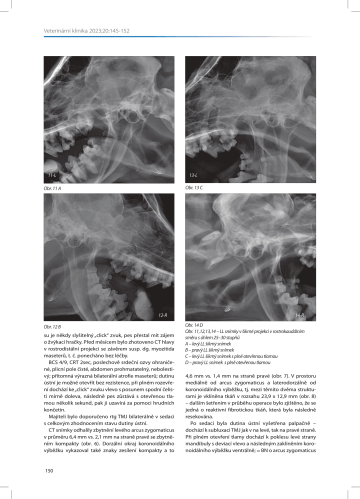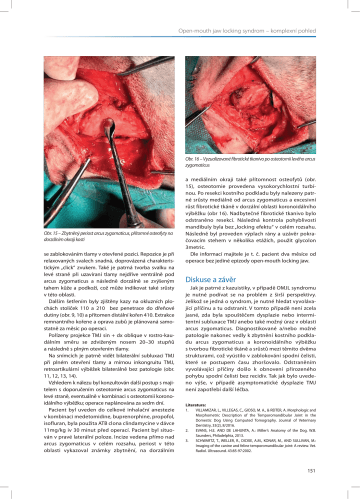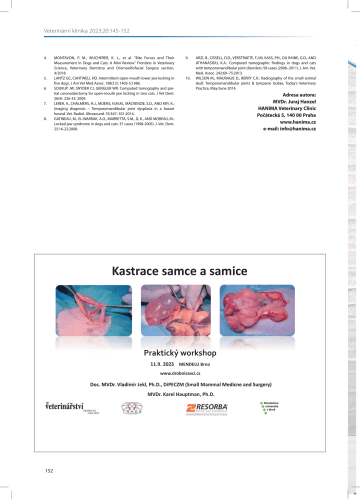Impairment of the temporomandibular joint
Professional Dental Consultation
The first step before any dental procedure with us is always a professional dental consultation, also known as a dental examination. Without this, we are unable to determine the type, extent, or cost of the necessary dental or dental surgical procedure. We strive to approach our clients transparently to ensure that it is entirely clear what needs to be done and how much it will cost.
The price for a professional dental consultation is 940 CZK.
The temporomandibular joint (TMJ) connects the lower jaw to the skull and facilitates jaw movement for biting, chewing, and opening the mouth. Various TMJ disorders can occur in dogs, leading to pain and movement issues in the jaw. The most common TMJ disorders include arthritis, dislocation, ankylosis, and open-jaw locking syndrome.
TMJ Arthritis
Arthritis is an inflammation of the joint that can be caused by trauma, infection, or degenerative changes. Symptoms include pain, swelling, and limited jaw movement. Diagnosis is based on clinical examination and X-rays. Treatment involves the administration of anti-inflammatory drugs and analgesics, and sometimes physiotherapy.
TMJ Dislocation
TMJ dislocation occurs when the joint head is displaced from the joint socket. This condition can be caused by trauma or congenital predisposition. Symptoms include the inability to close the mouth, pain, and jaw asymmetry. Diagnosis is confirmed by X-ray. Treatment involves manual repositioning of the joint under sedation, and subsequent stabilization of the joint.
TMJ Ankylosis Ankylosis is a condition where the joint becomes ossified (turned to bone), leading to stiffness and restricted movement. This condition can be caused by chronic inflammation or trauma. Symptoms include limited jaw movement (inability to open mouth) and pain. Treatment may involve surgery to remove the ossified part of the joint, followed by rehabilitation or administering corticosteroids with pain medications.
Open-Jaw Locking Syndrome This syndrome is characterized by the inability to close the jaw after it has been opened, often due to subluxation (partial dislocation) or dislocation of the joint. Symptoms include the inability to close the mouth, drooling, and restlessness. Diagnosis is based on clinical examination and X-rays. Treatment involves manual repositioning of the joint, joint stabilization, and usually requires surgery.
Treatment of TMJ disorders - generally
Medications: Anti-inflammatory drugs, corticosteroids, analgesics, and possibly antibiotics in case of infection are used.
Physiotherapy: Exercises and therapy to improve mobility and reduce joint pain.
Surgical Intervention: In cases where conservative treatment is not effective, surgery may be necessary to remove pathological changes in the joint.
Joint Stabilization: Sometimes the joint can be temporarily stabilized to reduce pain and inflammation.





